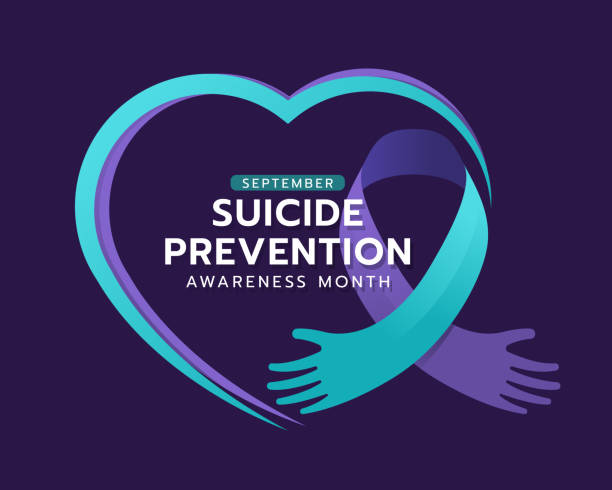Content Warning: This article discusses suicide prevention and mental health recovery. If you or someone you know is in crisis, please call or text the 988 Suicide & Crisis Lifeline or dial 911 for immediate assistance. You are not alone.
Suicide Prevention Month: A Call to Act and Connect
Every September, communities across the U.S. observe Suicide Prevention Awareness Month—a time to reduce stigma, raise awareness, and extend compassion to those in pain. As highlighted by SAMHSA (Substance Abuse and Mental Health Services Administration), suicide is a leading cause of death—and the most effective prevention begins with timely access to care, meaningful human connection, and evidence-based treatment.
Yet for many, traditional mental health care can feel out of reach. Whether it’s the weight of depression, transportation barriers, or geographic limitations, in-person therapy isn’t always an option.
That’s why virtual outpatient care is more than just convenient—it’s life-saving. At Higher Purpose Recovery, our Virtual IOP, Virtual OP, and Alumni Program are designed specifically for those navigating suicidal ideation, depression, trauma, or anxiety—and seeking a safe, flexible, and deeply supportive path forward.
What Is a Virtual Outpatient Program?
A Virtual Outpatient Program (VOP) is a structured mental health program delivered entirely online. At Higher Purpose Recovery, we offer two levels of care:
- Virtual Intensive Outpatient Program (Virtual IOP): A more frequent and intensive schedule—usually 3 to 5 days a week—with a mix of group therapy, individual sessions, and skill-building work.
- Virtual Outpatient Program (Virtual OP): A step-down level of care with fewer sessions per week, ideal for those who’ve built foundational skills but still need ongoing support.
- Alumni Program: A long-term support track for those who have completed Virtual IOP/OP, providing access to peer connection, events, groups, and continuing resources through our dedicated app.
These programs are best suited for individuals who don’t need inpatient or hospitalization—but still require structured, therapeutic support for emotional challenges, including suicidal ideation.
Recognizing the Warning Signs
According to SAMHSA, suicide risk often emerges from a convergence of emotional, psychological, and situational stressors, including:
- Persistent hopelessness or despair
- Isolation and withdrawal from loved ones
- Expressions of feeling like a burden or having no purpose
- Major life transitions or trauma
- Increased substance use, anxiety, or sleep issues
- Talking about death, self-harm, or “not wanting to wake up”
At Higher Purpose Recovery, our programs help clients identify and navigate these warning signs before they escalate into crisis.
What Makes Virtual Care So Effective?
During a strategy meeting with the HPR team, Clinical Director Kosta Condous explained it simply:
“People in this state are usually too depressed or anxious to leave their home. Virtual care gives them access to therapy without the overwhelming barrier of having to physically show up somewhere. They can get help from bed if they need to.”
Key benefits include:
- Immediate access to support—no waiting weeks for appointments
- Flexible scheduling, including early mornings and evenings
- Privacy and safety, receiving care from the comfort of home
- No transportation required, reducing common drop-off risks
- Greater willingness to engage, especially for those battling stigma or social anxiety
As Program Director Wren Goolsby added:
“When someone joins our virtual outpatient program, they’re not just logging into a Zoom session—they’re entering a community that understands them. We tag clients based on their program level and give them instant access to calendars, groups, and resources through our mobile app.”
Therapies That Work in a Virtual Setting
At Higher Purpose Recovery, we rely on evidence-based modalities proven effective in treating suicidal ideation, depression, and trauma:
- CBT (Cognitive Behavioral Therapy): Helps reframe destructive thought patterns
- DBT (Dialectical Behavior Therapy): Provides tools for emotional regulation, crisis coping, and distress tolerance
- Existential Therapy: Assists clients in rediscovering meaning and purpose beyond past pain
- Group Therapy: Fosters peer connection, empathy, and the realization: “I’m not the only one.”
- Individual Therapy: Personalized, one-on-one care to explore deeper emotions, trauma, and growth goals
“A lot of suicidal ideation comes from unresolved trauma. People feel stuck in the past, in a victim role. Through therapy, they finally start to move forward.” — Wren Goolsby

The App That Connects It All
To ensure continuity and ease of use, Higher Purpose Recovery has developed a dedicated mobile app that acts as the central hub for care and communication.
📱 Available for Apple and Android, the app includes:
- Group therapy schedules
- Zoom links for therapy sessions
- Alumni meeting calendars
- Notifications and reminders
- Secure access levels based on program stage
“It’s not just a therapy app—it’s a mental health ecosystem. Our alumni and clients use it every week to stay connected, stay accountable, and stay supported.”
How This Aligns with SAMHSA’s Suicide Prevention Toolkit
SAMHSA emphasizes the following pillars of suicide prevention, all of which are embedded into Higher Purpose Recovery’s virtual programming:
✅ Access: Virtual care removes geographic, financial, and emotional barriers
✅ Connection: Group and alumni programming reduces isolation—a key suicide risk factor
✅ Flexibility: Treatment is available outside traditional 9-to-5 hours
✅ Safety Planning: Each client receives a custom plan for moments of crisis
✅ Cultural Competency & Compassion: Clients are treated with dignity, regardless of background or trauma history
SAMHSA also encourages individuals to learn what their insurance covers and seek low-cost or sliding scale care—something our admissions team is trained to help with.
Who Is Virtual Care Right For?
Virtual IOP/OP is especially helpful for those who:
- Feel too depressed, anxious, or overwhelmed to leave the house
- Have recently left inpatient or residential care and need structure
- Live in remote areas or lack reliable transportation
- Want flexible support that fits their work or family schedule
- Are navigating recent trauma, grief, or suicidal thoughts but are not in active crisis
Please Note: For individuals experiencing active suicidal plans or in immediate danger, a higher level of care may be appropriate. We can assist with referrals to inpatient facilities or stabilization units if needed.
Crisis Resources You Should Know
- 📞 Call or Text 988 – 988 Suicide & Crisis Lifeline
- 🧠 SAMHSA Suicide Prevention Toolkit
- 📱 Higher Purpose Recovery App – Available on Apple and Android
Take the First Step Today
You are not alone. Your pain is real—but so is your ability to heal.
Whether you’re battling depression, navigating trauma, or supporting someone you love, Higher Purpose Recovery is here to help. Our team is ready to walk beside you with flexible, compassionate care that meets you exactly where you are.
✅ Schedule a free virtual consultation
✅ Verify your insurance benefits
✅ Download our mobile app and explore available support
Recovery begins with connection. Let’s start there—together.
Speak Up. Reach Out. Stay Connected.
This Suicide Prevention Awareness Month, we invite you to take action—whether it’s for yourself, a loved one, or your community. Mental health care is more accessible than ever, and help is just a click, call, or app download away.
Let Higher Purpose Recovery be your partner in rediscovery, healing, and growth.





